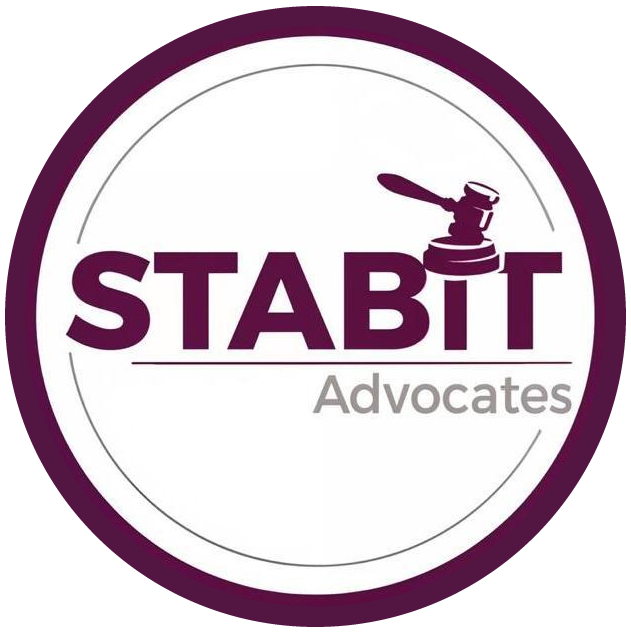The Remote Work Revolution: Navigating the Legal Landscape of the New Corporate Reality. A stabit…

Legal Guidance on Investing in Rwanda
September 17, 2024 10:29 am
Stabit Advocates is pleased to present this comprehensive legal guide on the advantages and legal framework for investing in the Republic of Rwanda. This document aims to provide clear and detailed information to assist potential investors in understanding the benefits and legal requirements of investing in Rwanda, ensuring compliance with all relevant laws and regulations.
Strategic Location and Market Access
Rwanda’s strategic location in the heart of Africa provides investors with access to a market of over 12 million people domestically and over 170 million people within the East African Community (EAC). The country’s membership in the EAC and the Common Market for Eastern and Southern Africa (COMESA) facilitates tariff-free access to these regional markets, enhancing trade opportunities.
Political Stability and Governance
Rwanda is renowned for its political stability and effective governance. The country has a robust legal framework that supports business operations and protects investments. The Rwandan government has implemented policies to ensure transparency, accountability, and the rule of law, creating a conducive environment for investors. The World Bank’s Doing Business Report consistently ranks Rwanda as one of the top African countries for ease of doing business.
Economic Growth and Development
Rwanda has experienced significant economic growth over the past decade, with an average annual GDP growth rate of approximately 7%. The government’s Vision 2050 and the National Strategy for Transformation (NST1) outline ambitious plans for continued economic development, focusing on sectors such as agriculture, manufacturing, services, and information and communication technology (ICT).
Investment Incentives
The Rwandan government offers various incentives to attract foreign and domestic investment. These incentives include:
- Tax Incentives: Investors can benefit from corporate income tax holidays, accelerated depreciation, and exemptions from import duties on machinery and raw materials.
- Special Economic Zones (SEZs): Businesses operating in SEZs enjoy additional benefits, such as reduced corporate income tax rates, streamlined customs procedures, and infrastructure support.
- Investment Allowances: Deductions for capital expenditures on qualifying investments, promoting reinvestment and expansion.
Legal Framework for Investment
The legal framework for investment in Rwanda is governed by several key laws and regulations, including:
- Investment Code: The Investment Code of Rwanda, Law No. 06/2015 of 28/03/2015, provides the legal basis for investment promotion and protection. It outlines the rights and obligations of investors, the types of investments eligible for incentives, and the procedures for obtaining investment certificates.
- Company Law: The Law No. 17/2018 of 13/04/2018 governing companies in Rwanda sets out the requirements for company formation, management, and dissolution. It ensures that businesses operate transparently and in accordance with international best practices.
- Labour Law: The Labour Law No. 66/2018 of 30/08/2018 regulates employment relationships, ensuring fair treatment of employees and compliance with labour standards.
- Tax Law: The Law No. 016/2018 of 13/04/2018 on the Tax Procedures and the Law No. 026/2019 of 18/09/2019 on the Income Tax outline the tax obligations of businesses and individuals, providing clarity on tax rates, filing requirements, and compliance procedures.
Infrastructure and Connectivity
Rwanda has made substantial investments in infrastructure to support economic growth. The country boasts a well-developed road network, modern airports, and reliable energy supply. Kigali International Airport serves as a regional hub, facilitating international trade and investment. Additionally, the government is investing in ICT infrastructure to position Rwanda as a technology and innovation hub in Africa.
Human Capital and Workforce
Rwanda places a strong emphasis on education and skills development, ensuring a well-trained and capable workforce. The government has implemented policies to improve access to quality education and vocational training, aligning the skills of the workforce with the needs of the economy. Investors can benefit from a young, dynamic, and increasingly skilled labour force.
Sustainable Development and Environmental Protection
Rwanda is committed to sustainable development and environmental protection. The government has implemented policies to promote green growth and reduce environmental impact. Investors are encouraged to adopt sustainable practices and contribute to the country’s environmental goals. The Rwanda Environment Management Authority (REMA) oversees environmental regulations and ensures compliance with environmental standards.
Investment Protection
Rwanda offers robust legal protections for investors to ensure the security and profitability of their investments. Key aspects of investment protection include:
- Bilateral Investment Treaties (BITs): Rwanda has entered into several BITs with various countries to provide additional protection to foreign investors. These treaties typically include provisions on fair and equitable treatment, protection against expropriation, and dispute resolution mechanisms.
- Expropriation and Compensation: The Rwandan Constitution and the Investment Code protect investors against unlawful expropriation. In cases where expropriation is necessary for public interest, investors are entitled to prompt, adequate, and effective compensation.
- Dispute Resolution: Rwanda provides multiple avenues for resolving investment disputes, including negotiation, mediation, arbitration, and litigation. The country is a signatory to the International Centre for Settlement of Investment Disputes (ICSID) Convention, allowing investors to resolve disputes through international arbitration.
- Intellectual Property Rights (IPR): Rwanda has a comprehensive legal framework for the protection of intellectual property rights, including patents, trademarks, copyrights, and trade secrets. The Rwanda Development Board (RDB) oversees the registration and enforcement of IPR, ensuring that investors’ innovations and creations are protected.
- Guarantees and Incentives: The Investment Code provides guarantees against changes in the legal framework that could adversely affect investors. Additionally, the government offers various incentives to mitigate risks and enhance the attractiveness of investing in Rwanda.
Rwanda Development Board (RDB)
The Rwanda Development Board (RDB) is the government agency responsible for promoting and facilitating investment in Rwanda. Established in 2008, RDB operates as a one-stop center for investors, providing a range of services to support business establishment and growth. Key functions of RDB include:
- Investment Promotion: RDB actively promotes Rwanda as an attractive investment destination through international roadshows, business forums, and targeted marketing campaigns. The agency showcases investment opportunities in priority sectors such as agriculture, construction, energy, finance, ICT, infrastructure, manufacturing, mining, and tourism.
- Investment Facilitation: RDB assists investors with the entire investment process, from initial inquiries to business registration and operational support. The agency provides information on investment opportunities, facilitates meetings with relevant stakeholders, and offers guidance on regulatory requirements.
- One-Stop Center Services: RDB streamlines the business registration process by combining all necessary registrations under one roof. Investors can obtain incorporation certificates, tax identification numbers (TIN), and social security registrations through a single application.
- Aftercare Services: RDB offers aftercare services to existing investors, helping them navigate challenges and expand their operations. The agency provides support for reinvestment, business expansion, and access to local and international markets.
- Policy Advocacy: RDB works closely with the government to advocate for policies that enhance the investment climate. The agency provides feedback from investors to policymakers, ensuring that the regulatory environment remains conducive to business growth.
Investment Opportunities in Specific Sectors
Rwanda offers a diverse range of investment opportunities across various sectors. Key sectors with significant potential include:
- Agriculture and Agro-Processing: Rwanda’s fertile land and favorable climate make it ideal for agriculture. Investment opportunities exist in crop production, livestock farming, and agro-processing. The government promotes value addition in agriculture through incentives for agro-processing industries.
- Manufacturing: The “Manufacture and Build to Recover Program” (MBRP) aims to boost manufacturing by providing incentives such as VAT exemptions on imported construction materials and tax credits. Key areas include construction materials, textiles, and consumer goods.
- Energy: Rwanda’s energy sector offers opportunities in renewable energy, including hydro, solar, and biomass. The government is committed to increasing energy access and has implemented policies to attract private investment in power generation and distribution.
- Information and Communication Technology (ICT): Rwanda is positioning itself as an ICT hub in Africa. Investment opportunities exist in software development, IT services, and telecommunications infrastructure. The government supports ICT innovation through various initiatives and incentives.
- Tourism and Hospitality: Rwanda’s unique attractions, such as the Volcanoes National Park and Lake Kivu, make it a prime destination for eco-tourism and adventure tourism. Investment opportunities include hotel development, tour operations, and related services.
- Mining: Rwanda is rich in mineral resources, including tin, tungsten, and tantalum. The government encourages investment in exploration, extraction, and processing of minerals. The mining sector offers significant potential for growth and value addition.
- Financial Services: Rwanda’s financial sector is growing rapidly, with opportunities in banking, insurance, and investment services. The government promotes financial inclusion and innovation, creating a conducive environment for financial services firms.
Tax Incentives
Rwanda offers a range of tax incentives to attract and retain investors. Key tax incentives include:
- Zero Corporate Income Tax: Companies planning to relocate their headquarters to Rwanda can benefit from a zero corporate income tax rate.
- Preferential Corporate Income Tax Rate: A 15% preferential corporate income tax rate is available for strategic sectors such as energy, transport, affordable housing, ICT, and financial services.
- Accelerated Depreciation: Investors in key priority sectors, including tourism, construction, manufacturing, and agro-processing, can benefit from accelerated depreciation of 50%.
- Exemption of Customs Duties: Importation of machinery and raw materials used in manufacturing and agro-processing is exempt from customs duties.
- VAT Refunds: Investors in export-oriented industries can benefit from VAT refunds on goods and services purchased locally.
- Investment Allowances: Deductions for capital expenditures on qualifying investments, promoting reinvestment and expansion.
- Tax Holidays: Newly established companies in priority sectors may be eligible for tax holidays, exempting them from corporate income tax for a specified period.
Conclusion
Stabit Advocates is committed to providing expert legal guidance to ensure that your investment in Rwanda is compliant with all applicable laws and regulations. Rwanda offers a stable, transparent, and conducive environment for investment, supported by a robust legal framework and attractive incentives.
If you love our article on “Legal Guidance on Investing in Rwanda,” check back here for more legal news
Contact Information
Stabit Advocates
Website: www.stabitadvocates.com
Email: info@stabitadvocates.com
Phone: +250 789 366 274
For more information or to discuss your case, please contact us at www.stabitadvocates.com.
This guide is intended to provide general information and does not constitute legal advice. For specific legal advice tailored to your situation, please consult with a qualified attorney at Stabit Advocates.




This Post Has 0 Comments